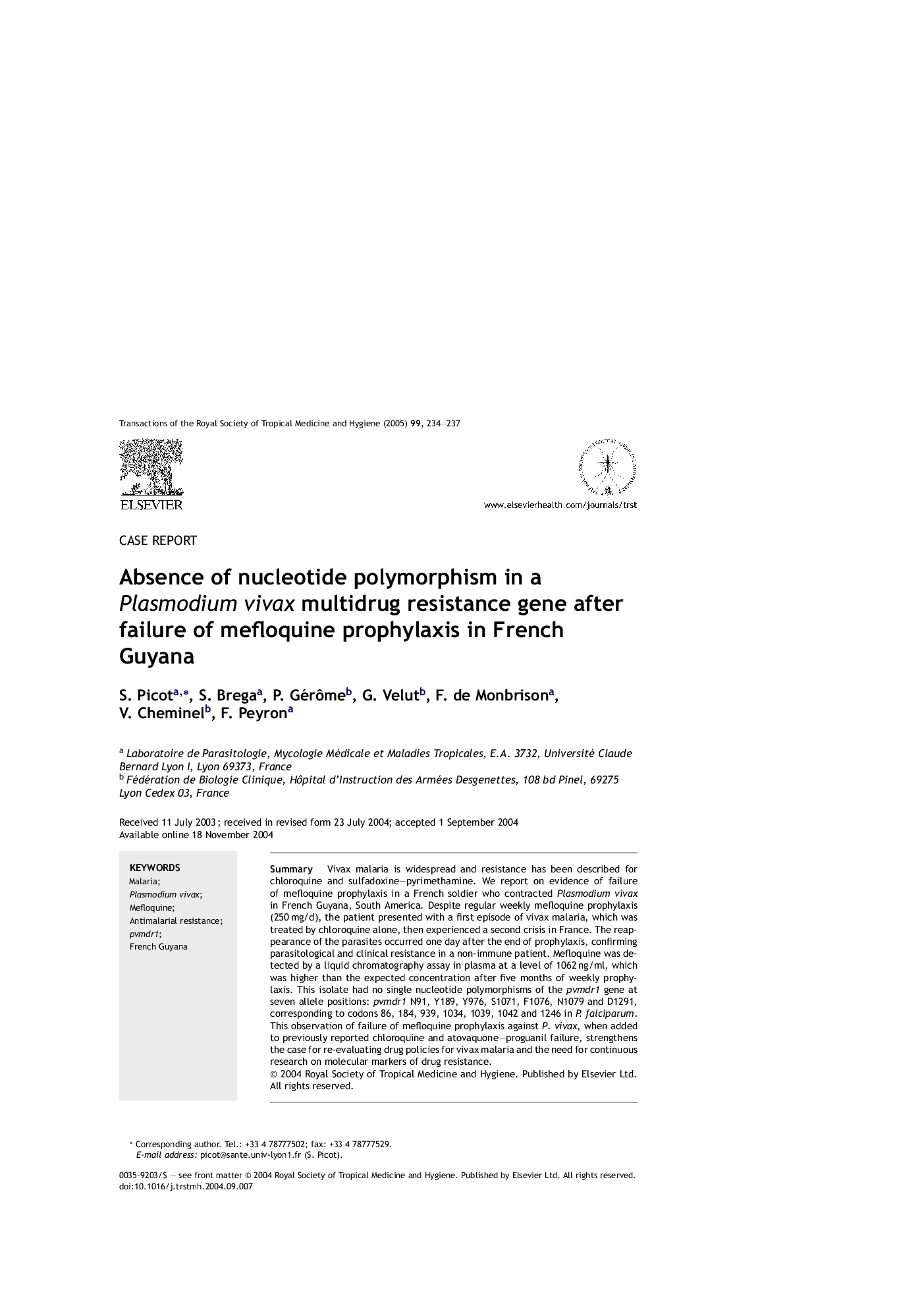| Article ID | Journal | Published Year | Pages | File Type |
|---|---|---|---|---|
| 10030643 | Transactions of the Royal Society of Tropical Medicine and Hygiene | 2005 | 4 Pages |
Abstract
Vivax malaria is widespread and resistance has been described for chloroquine and sulfadoxine-pyrimethamine. We report on evidence of failure of mefloquine prophylaxis in a French soldier who contracted Plasmodium vivax in French Guyana, South America. Despite regular weekly mefloquine prophylaxis (250Â mg/d), the patient presented with a first episode of vivax malaria, which was treated by chloroquine alone, then experienced a second crisis in France. The reappearance of the parasites occurred one day after the end of prophylaxis, confirming parasitological and clinical resistance in a non-immune patient. Mefloquine was detected by a liquid chromatography assay in plasma at a level of 1062Â ng/ml, which was higher than the expected concentration after five months of weekly prophylaxis. This isolate had no single nucleotide polymorphisms of the pvmdr1 gene at seven allele positions: pvmdr1 N91, Y189, Y976, S1071, F1076, N1079 and D1291, corresponding to codons 86, 184, 939, 1034, 1039, 1042 and 1246 in P. falciparum. This observation of failure of mefloquine prophylaxis against P. vivax, when added to previously reported chloroquine and atovaquone-proguanil failure, strengthens the case for re-evaluating drug policies for vivax malaria and the need for continuous research on molecular markers of drug resistance.
Related Topics
Life Sciences
Immunology and Microbiology
Applied Microbiology and Biotechnology
Authors
S. Picot, S. Brega, P. Gérôme, G. Velut, F. de Monbrison, V. Cheminel, F. Peyron,
